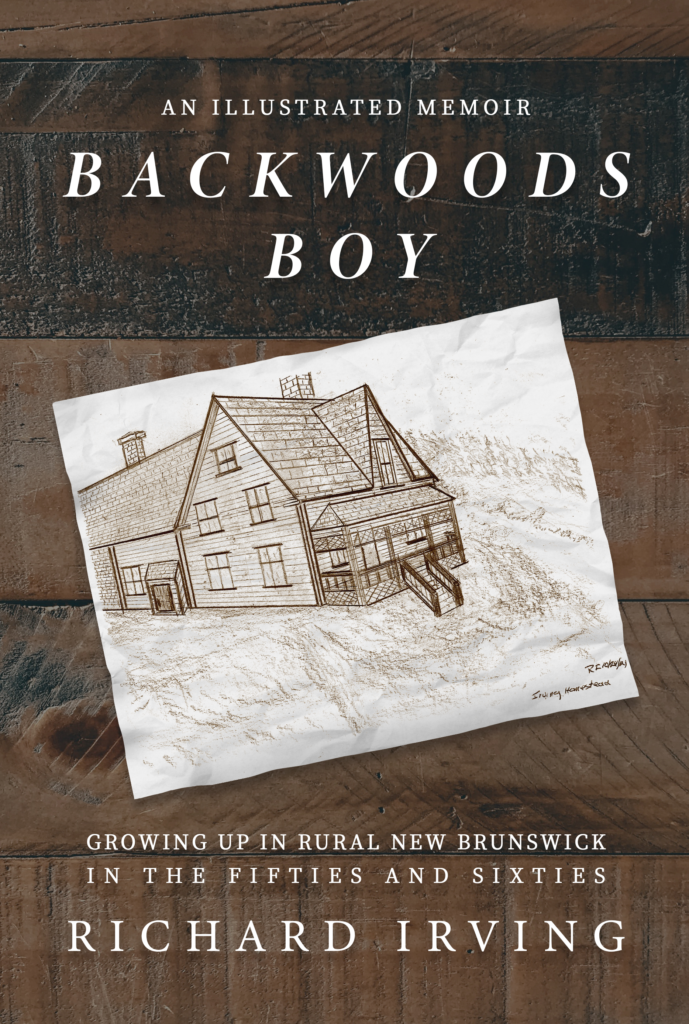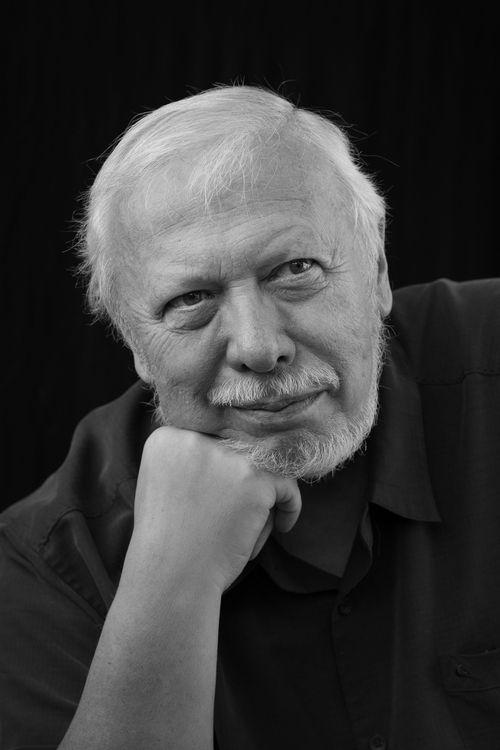Backwoods boy
GROWING UP IN RURAL NEW BRUNSWICK IN THE FIFTIES AND SIXTIES
By Richard Irving
Bookstores or for pickup, email Rick at bkwdsby2020@gmail.com for a quote.
About The Book
In Backwoods Boy, author Richard Irving takes you on a lighthearted romp through the maple trees and blueberry bushes of his childhood in Canada during the fifties and sixties.
Emerging from World War II, the rural county of Baltimore, New Brunswick, was isolated by poor roads and a lack of expensive telecommunications. Nevertheless, this seclusion fostered deep community connections and a solid sense of place in the people who raised their families, helped their neighbours, and built their lives without fanfare or recognition.
Thirty-four pencil-and-ink sketches and thirteen photographs accompany whimsical stories that illustrate the joys and challenges of each season and demonstrate the social effects of technology’s progression.
What’s Inside
Part 1
- My World in the Fifties and Sixties
- The Old Homestead
Part 2
- Spring Renewal
- Getting the Farm Ready
- Summer Abundance
- Recreation
- Summer Lessons Learned
- Fall Frenzy
- Going Back to School
- Fall Stories
- Winter Recuperation
Part 3
- The Day Our House Burned Down
- From Backwoods to Big City
- Reflections
Preface
As I write this in 2021, I wear a digital watch that tracks my movements, heart rate, GPS location, and outside temperature. That watch connect to my smartphone and notifies me when I have messages. My phone, and tablet on which I write, are connected to the internet — I can find information immediately. Today, from my desk, I can: make video calls worldwide; teach a class of fifty people from my tablet; or take a course from anywhere in the world. I no longer need to travel to boring meetings and can access most services without moving. While attending a Zoom meeting: I can mute my audio and video to make lunch, nap or read a book… while still ‘participating’ in the forum.
People in their twenties and younger have never known a world without cell phones and computers…just living their lives to the rhythm of notification chines, It was not always thus.
Those of us in our fifties and older remember when these things were he stuff of science fiction. If you wanted to know something, you read a book; and you looked up someone’s phone number in a phone book, to hang out with your friends, you went to their house.
Seven decades of changes in technology and society have left their mark. Beginning as a backwoods boy: I grew up to eventually obtain a PH.D. in Management Science from the University of Waterloo and became a Professor at the “Schulich School of Business” at York University in Toronto—-researching the effects of new technology on organisations. I have seen a world transformed by technology. In some cases, made better; in others, not so much.
Still…no one pines for the good old days of dentistry.
Seventy years ago, many rural forks (me included) didn’t have running water, indoor toilets, electricity, or telephones. In the 1940’s, 1950s, and 1960s, we began to see the beginning of changes that led to today’s world. I experienced those changes and saw a globe transformed so thoroughly and people from the forties and fifties wouldn’t recognize much of how we now live. However, despite lacking our modern-day technological advances, they managed to live full, satisfying lives— and may have even formed stronger social connections than we do today.
.
Chapters
Pages
Dedication
This book is dedicated to my parents, Harold and Gladys Irving, who made me what I am; to my son Alex, my daughter-in-law, Keri; and to my grandsons. Colby, Wyatt, and Lachlan, give me hope for the future.
I also dedicate the book to all the quiet, unremarkable people who lived the best lives they could. They are typically unsung, unheard, and often forgotten. They are the majority, largely ignored by history and historians. My people are Hobbits, quiet and easily overlooked this book honours them.
* No dead authors or artists were harmed in the production of these fake endorsements.
Buy the Ebook
Backwoods Boy Blog
Backwoods Boy In Mississauga
The Port Credit library is now open. Take out the book for your summer read
Backwoods Boy In Ottawa
Had a great day in Ottawa at the Book shop
Backwoods Boy In Creemore
Had a great day in Creemore at the Curoisity Book shop.
contact richard
















